Opportunities for musicians in Namibia
By Jacques Nashilongweshipwe Mushaandja
Namibian music has a very long history. Parts of this history, however, have not been captured and are not easily traceable in existing archives. Since Namibia gained its independence from colonial rule in 1990, the creation of a music industry has been slowly but surely taking place. Extensive growth can be traced from the late 1990s and early 2000s, when Namibia started seeing a rise in young, popular artists. Although there are a number of establishments that are designed to provide opportunities and exposure to Namibian music makers, local artists still face many challenges in accessing and utilizing these services. This overview text takes a broad look at some of the opportunities that are available for Namibian music makers.
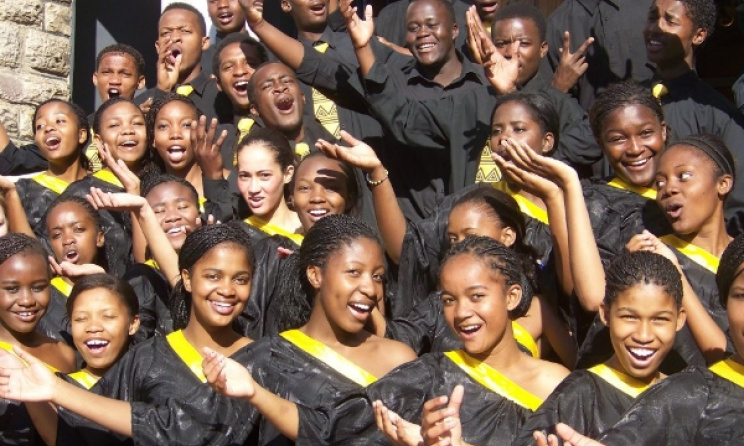 Namibia's College of the Arts (COTA) Choir. Photo: www.informante.web.na
Namibia's College of the Arts (COTA) Choir. Photo: www.informante.web.na
Putting your music on record, making a music video or public performance and sharing them with the local radio and television stations are some of the most common ways of getting the public to know about you and your work. However, before you do any of these, it is important that you make sure that your record is registered and protected with the Namibian Society of Composers and Authors of Music (NASCAM). It is important to protect your intellectual property before getting it out into the market. This is part of knowing your rights as an artist operating in a young market where artists are exploited on a day-to-day basis. Making an effort to know the rights that you have as an artist is a gateway to the variety of resources available to you.
Training and education
It is always advisable to get some kind of training for your craft because it exposes you to more opportunities in the business and around the world. Make it your personal duty to find out about all the education and training opportunities available to you, both in the public and private sector.
Despite most facilities being located in Windhoek, the capital city, opportunities for training and education institutions are becoming more present in other Namibian towns and even in rural areas. The Directorate of Arts (under the Ministry of Education, Arts and Culture) has been running the National Extension programme, which deploys community artists and other creative professionals to facilitate talent and skills development at a grassroots level. Through collaborative efforts with external stakeholders, community artists have been part of creating community arts centres that serve many purposes. For an artist, being attached or connected to a community art centre is supposed to keep you constantly informed about the kind of activities you are interested in. Community arts centres generally have the responsibility of providing teaching, learning, and practicing opportunities.
In terms of formal training, the College of the Arts (COTA) and the University of Namibia’s (UNAM) Visual and Performing Arts department offer courses in the fields of contemporary music practices, (ethno)musicology and cultural management. COTA offers a practice-based curricula while UNAM offers more theoretical and research degree programmes. These courses can also be taken together with other fields of study in the arts and humanities.
Internships and residencies
There is an huge gap in the areas of internships and residencies for music makers. Music students and graduates have previously taken up general internships in the Directorate of Arts, COTA or other arts administrative organizations. Music technology students have the opportunity to intern at local radio and television stations such as the Namibian Broadcasting Corporation (NBC) and One Africa Television. These internships are often organized by the university or college where you are studying. There are very few independent music studios, on the other hand, and they do not generally offer internships.
There is very little visibility for residencies for musicians in Namibia. Although UNAM and COTA have hosted a few international resident artists over the years, it is evident that there is a lack of collaboration between Namibian music makers. I see this as an opportunity for arts bodies and artists to initiate a sustainable culture of hosting local makers under residency programmes.
Festivals and events
It has become common for some town and city councils around the country to host festivals and trade expos, which always need music services. Although there is still a need for cultivating a stronger culture of music and arts festivals around the country, there are established annual events that are organized or sponsored by various corporate as well as public organizations.
Some of the most notable festivals and music-related events to consider for possible involvement are the /Ae //Gams Festival; the Ongwediva Trade Fair; the Crayfish Festival; the Bank Windhoek Arts Festival; Oktoberfest; the Windhoek Agricultural and Industrial Show; the Annual National Cultural Festival; World Music Day concerts; the Namibia Tourism Expo; the Namibia Annual Music Awards (NAMA); and the Windhoek Jazz Festival, to mention but a few.
There are also other monthly platforms such as Song Night, Last Band Standing and Spoken Word Namibia. These events are often publicized and promoted in various local media outlets.
At the same time, it is worth keeping an eye on embassies and foreign donor organizations that may have interest in arts and culture activities. Visit centres such as the Goethe-Institut, the Finnish Embassy and the Franco-Namibian Cultural Centre to familiarize yourself with the kinds of programmes they roll out - and how you can get involved.
It is your responsibility as a young musician to find out about what these regular festivals are and how you can be a part of them. To take part in a festival, it is always best to be proactive by doing your own research and expressing your interest as a musician. This means following application procedures and making sure you are available for auditions.
Funding
Sourcing funding for potential projects is always a challenge, particularly for young and upcoming artists. The Directorate of Arts and the National Arts Council (which is currently dormant) have been the biggest sources of funding in the Namibian arts and culture sectors over the years. It is also important to remember that you can also access funding from other places apart from government institutions. For example, more local corporates have been gaining interests in investing in the music industry. It is always useful to identify these organizations and others in your area that you think could have interests in supporting your musical project. Putting together a detailed project proposal is one of the first things to do when approaching a potential funder or partner.
Networking
Networking and becoming part of existing and relevant associations is crucial for you as an artist working in today’s modern music industry. Making use of the internet is one of the best ways of surviving as an artist. The internet is not only an invaluable source of information, it has become a space where people around the world connect on a daily basis to share and promote ideas. Many organizations and artists have Facebook and Twitter pages through which they continuously interact with the public. You might also simply want to learn about the kinds of music association and initiatives that are out there. These can be local, national or international groups where artists come together to share ideas and advise.
Looking at social media as an opportunity to market and promote your work should be part of the communication and marketing strategy of your music projects. Online content is often instantly available and can reach a potentially global audience much faster. You have an option of several online platforms where you can upload your work for free. One of the most popular examples of this Soundcloud, which allows you to share your musical works, whether raw demos or the finished product, with the public. However, also have an agenda and be cautious of what, how and where you choose to share information.
Apart from online sources, artists and cultural workers working in various regions are always working on setting up informal establishments to help defend and promote works of local artists. One has to connect with fellow artists in your vicinity to find out about such initiatives and their activities.
Going out there and looking for opportunities to advance and promote your career often assumes that you have a product in place that is ready to be shared with the world. It also often assumes that you have put considerable thought into your music and that it has the potential to go places. Opportunities for musicians are unlimited - it is simply up to you to identify them and to make use of them to your fullest ability.















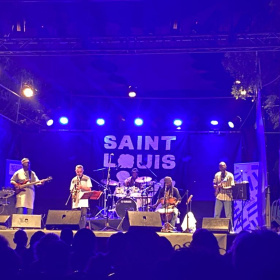


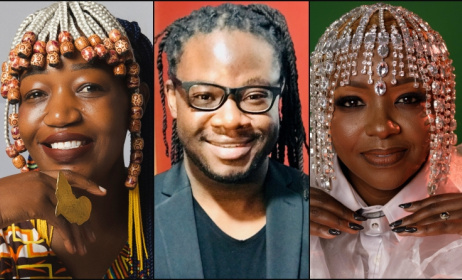
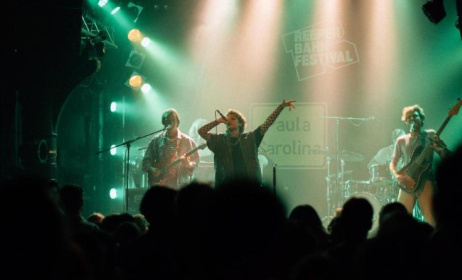



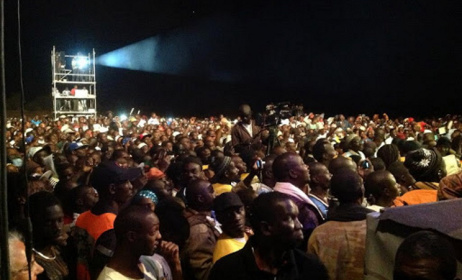


Commentaires
s'identifier or register to post comments